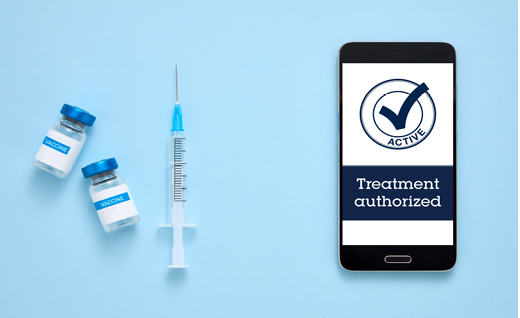Author: Amit Sethi, Technical Marketing Manager, STMicroelectronics Pvt Ltd
NFC, a short-range wireless communication technology, enables data exchange between devices when they are brought into proximity. In medical applications, NFC can play a pivotal role in facilitating communication between medical devices, improving patient identification, and ensuring secure data transfer.
Patient Identification and Authentication: One of the critical aspects of healthcare is accurate and secure patient identification. NFC technology provides a robust solution by enabling healthcare providers to create electronic patient records linked to NFC tags or cards. These tags can store essential patient information such as medical history, allergies, and current medications. When a patient arrives, medical staff can quickly access this information by scanning the NFC tag with a compatible device, ensuring that the right patient receives the right care. This not only enhances patient safety but also streamlines the registration process, reducing administrative overhead.
Medication Management: NFC technology offers innovative solutions to improve medication management within healthcare facilities. Smart medication packaging equipped with NFC tags can be used to track medication usage, monitor adherence, and provide real-time data on a patient’s medication history. Patients can use NFC-enabled devices to access information about their prescribed medications, including dosage instructions and potential side effects. This technology helps in preventing medication errors and enhances overall patient education regarding their treatment plans.
Medical Device Connectivity: In a hospital setting, various medical devices are used to monitor patients and gather vital health data. NFC facilitates seamless connectivity between these devices, allowing for efficient data sharing and integration. For example, an NFC-enabled wearable device worn by a patient can transmit real-time health data to a monitoring station, enabling healthcare professionals to make timely decisions. This connectivity also extends to medical equipment calibration and updates. NFC can be employed to wirelessly update the software or firmware of medical devices, ensuring that they are always operating with the latest features and security patches.
Access Control and Security: Security is paramount in healthcare and NFC technology
contributes significantly to access control and data security. NFC cards or badges can serve as secure identification credentials for healthcare staff, limiting access to sensitive areas and patient records. This helps in preventing unauthorized access, safeguarding patient privacy, and maintaining the integrity of healthcare data. Moreover, NFC technology can be integrated into mobile devices, allowing healthcare professionals to securely access patient information through encrypted connections. This ensures that patient data remains confidential and protected against unauthorized access.
Contactless Payments in Healthcare: The use of contactless payments has become
commonplace in various industries, and healthcare is no exception. NFC technology facilitates secure and convenient contactless payment solutions within healthcare facilities. Patients can make payments for services or copayments by simply tapping their NFC-enabled payment cards or mobile devices. This not only streamlines the payment process but also reduces the risk of handling physical currency or cards, contributing to a more hygienic and efficient financial transaction experience in healthcare settings.
Patient Engagement and Monitoring: NFC technology plays a vital role in patient engagement and monitoring. Wearable devices equipped with NFC can be used to track patients’ activity levels, monitor vital signs, and transmit data to healthcare providers in real time. This proactive approach to patient monitoring allows for early detection of potential health issues and timely interventions. Patients can also use NFC-enabled devices to check in for appointments, access educational materials, and receive personalized health recommendations. This empowers the patients to engage actively in their healthcare journey.
NFC technology has the potential to revolutionize medical applications, offering solutions that enhance patient care, improve efficiency, and contribute to the overall advancement of
healthcare systems. From secure patient identification to streamlined medication management and innovative patient engagement strategies, NFC provides a versatile platform for innovation in the healthcare sector. As technology continues to evolve, the integration of NFC in medical applications will likely become more widespread, driving further improvements in patient outcomes and healthcare delivery. With careful consideration of security measures and industry standards, NFC stands poised to play a transformative role in shaping the future of healthcare.








